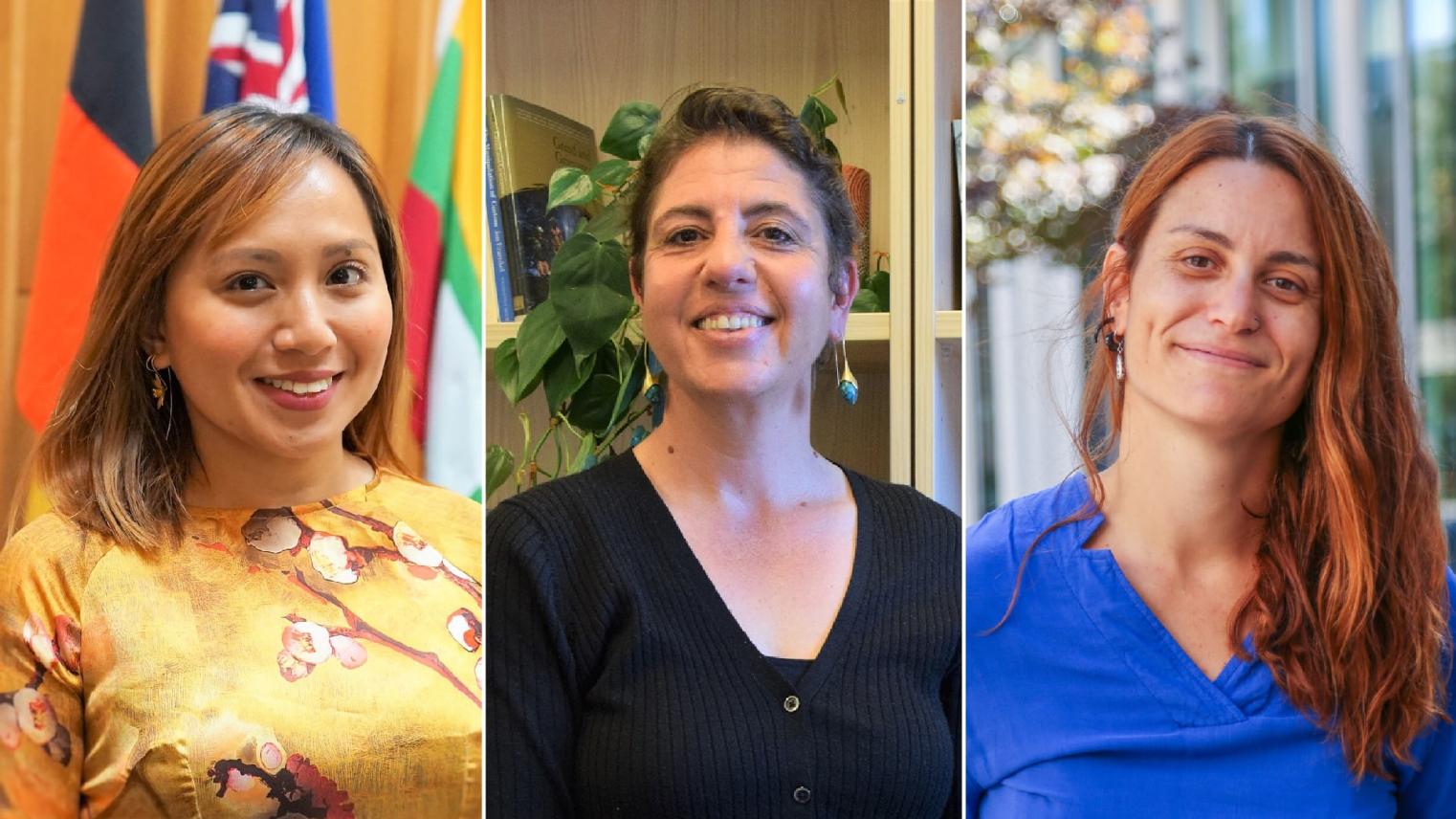Outstanding CAP researchers win DECRA funding

Three outstanding early career researchers from ANU College of Asia and the Pacific (CAP) have been awarded the distinguished Discovery Early Career Researcher Award (DECRA) for the 2024 round.
The DECRA scheme provides promising early career researchers with support and funding for their excellent and innovative research, addressing a significant problem or gap in knowledge to benefit economic, commercial, environmental, social, and cultural areas.
In a remarkable achievement, Dr Maria Tanyag from Coral Bell School of Asia Pacific Affairs, Dr Siobhan McDonnell from Crawford School of Public Policy and Dr Sofia Samper Carro from the School of Culture, History and Language were announced as winners for the 2024 round. Their successes were part of the broader achievement of 18 scholars from the Australian National University (ANU) overall.
Collectively, our exceptional College researchers have been granted nearly $1.5 million in funding to propel their high-calibre projects forward.
The international political thought of women’s regional networks
Dr Maria Tanyag's project, 'The international political thought of women's regional networks,' explores the political ideologies of Asian and Pacific women's regional networks, aiming to rectify their often undervalued contributions and misrecognition as solely addressing 'women's issues’.
“Despite significant labour by and intellectual leadership of Asian and Pacific women to collectively imagine and enact regional governance, their contributions are often devalued or worse, misrecognised as only about ‘women’s issues’. Nonetheless, these networks have generated unique ideas crucial for understanding today’s global crises and achieving regional and global security.” she said.
Dr Tanyag credits the College’s enriching environment and resources for inspiring her profound research questions.
“I’ve found tremendous opportunities at CAP to broaden my horizons – from the rich scholarly resources available through our libraries to the various public lectures and visits by distinguished guests from the region,” she shared.
Through her compelling project, Dr Tanyag hopes to highlight the significance of women’s regional networks in rendering regional and global governance as ‘fit for purpose’ in the context of multiple and overlapping crises.
Not Drowning, fighting?: UN climate governance and Pacific Island countries
Dr Siobhan McDonnell's project, 'Not Drowning, fighting?: UN climate governance and Pacific Island countries,' focuses on global climate governance and negotiations, particularly their impact on vulnerable Pacific communities.
Collaborating with Pacific governments, local communities, regional agencies, and civil society groups, Dr McDonnell, along with five Pacific Islander researchers, will analyse the outcomes of climate negotiations related to loss and damage and maintaining global warming below 1.5 degrees.
“These issues are of pivotal importance to the Pacific,” Dr McDonnell said. “Pacific leaders have spoken about how these climate change issues represent the greatest security threat to the future of Pacific peoples.”
Dr McDonnell's research also explores critiques of 'climate colonialism' and the slow pace of UN climate processes, considering how Pacific actors mobilize their agency and the gendered aspects of negotiations.
“In the context of these critiques, this research asks the how Pacific negotiators and civil society actors mobilise their agency on climate issues of importance to the region. But it will also be considering spaces of Indigenous diplomacy in climate change more broadly, and how negotiations are gendered,” Dr McDonnell said.
Neanderthal hunting ability and the extinction of archaic humans
Dr Sofia Samper Carro's project, 'Neanderthal hunting ability and the extinction of archaic humans,' investigates a critical factor in the extinction of Neanderthals: their hunting skills.
Through her research, Dr Samper Carro expects to generate new knowledge of archaic human behaviour by combining traditional archaeological analytical methods with groundbreaking biomolecular techniques. She also hopes to develop new knowledge in human evolutionary history and improve practices to understand past human extinction events.
Her research has the potential to make Australia a primary player in studying human history and archaeology, positioning the country as the first in the Southern Hemisphere to implement ancient protein studies.
Dr Samper Carro acknowledges the vital role of collaboration within the College, the Australian National University and international partners in her groundbreaking research.
“The supportive and thought-provoking environment at CAP and ANU has pushed me to explore new lines of research, some of which I will further explore during my project,” she said. “This DECRA award could not have been possible without this support.”
The DECRA funding awarded to these outstanding researchers recognises their individual achievements and showcases the transformative impact of research within the ANU College of Asia and the Pacific. It highlights the importance of interdisciplinary research and international partnerships in tackling complex global challenges.
For more information about CAP research, click here.